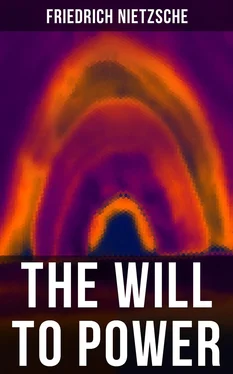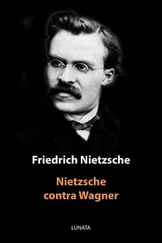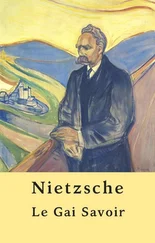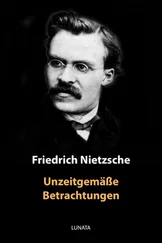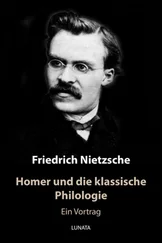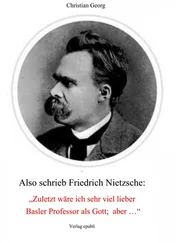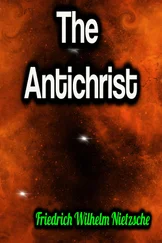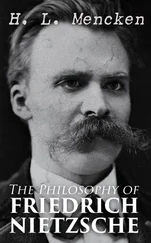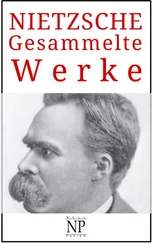Democracy is Christianity made natural : a sort of "return to Nature," once Christianity, owing to extreme anti-naturalness, might have been overcome by the opposite valuation. Result: the aristocratic ideal begins to lose its natural character ("the higher man," "noble," "artist," "passion," "knowledge"; Romanticism as the cult of the exceptional, genius, etc. etc.).
216.
When the "masters" may also become Christians. —It is of the nature of a community (race, family, herd, tribe) to regard all those conditions and aspirations which favour its survival, as in themselves valuable ; for instance: obedience, mutual assistance, respect, moderation, pity—as also, to suppress everything that happens to stand in the way of the above.
It is likewise of the nature of the rulers (whether they are individuals or classes) to patronise and applaud those virtues which make their subjects amenable and submissive —conditions and passions which may be utterly different from their own.
The gregarious instinct and the instinct of the rulers sometimes agree in approving of a certain number of qualities and conditions,—but for different reasons: the first do so out of direct egoism, the second out of indirect egoism.
The submission to Christianity on the part of master races is essentially the result of the conviction that Christianity is a religion for the herd, that it teaches obedience: in short, that Christians are more easily ruled than non-Christians. With a hint of this nature, the Pope, even nowadays, recommends Christian propaganda to the ruling Sovereign of China.
It should also be added that the seductive power of the Christian ideal works most strongly upon natures that love danger, adventure, and contrasts; that love everything that entails a risk, and wherewith a non plus ultra of powerful feeling may be attained. In this respect, one has only to think of Saint Theresa, surrounded by the heroic instincts of her brothers:—Christianity appears in those circumstances as a dissipation of the will, as strength of will, as a will that is Quixotic.
Table of Contents
217.
War against the Christian ideal, against the doctrine of "blessedness" and "salvation" as the aims of life, against the supremacy of the fools, of the pure in heart, of the suffering and of the botched!
When and where has any man, of any note at all, resembled the Christian ideal?—at least in the eyes of those who are psychologists and triers of the heart and reins. Look at all Plutarch's heroes!
218.
Our claim to superiority : we live in an age of Comparisons ; we are able to calculate as men have never yet calculated; in every way we are history become self-conscious. We enjoy things in a different way; we suffer in a different way: our instinctive activity is the comparison of an enormous variety of things. We understand everything; we experience everything, we no longer have a hostile feeling left within us. However disastrous the results may be to ourselves, our plunging and almost lustful inquisitiveness, attacks, unabashed, the most dangerous of subjects....
"Everything is good"—it gives us pain to say "nay" to anything. We suffer when we feel that we are sufficiently foolish to make a definite stand against anything.... At bottom, it is we scholars who to-day are fulfilling Christ's teaching most thoroughly.
219.
We cannot suppress a certain irony when we contemplate those who think they have overcome Christianity by means of modern natural science. Christian values are by no means overcome by such people. "Christ on the cross" is still the most sublime symbol—even now....
220.
The two great Nihilistic movements are: (a) Buddhism, (b) Christianity. The latter has only just about reached a state of culture in which it can fulfil its original object,—it has found its level, —and now it can manifest itself without disguise .....
221.
We have re-established the Christian ideal, it now only remains to determine its value.
(1) Which values does it deny ? What does the ideal that opposes it stand for?—Pride, pathos of distance, great responsibility, exuberant spirits, splendid animalism, the instincts of war and of conquest; the deification of passion, revenge, cunning, anger, voluptuousness, adventure, knowledge—the noble ideal is denied: the beauty, wisdom, power, pomp, and awfulness of the type man: the man who postulates aims, the "future" man (here Christianity presents itself as the logical result of Judaism ).
(2) Can it be realised? —Yes, of course, when the climatic conditions are favourable—as in the case of the Indian ideal. Both neglect the factor work. —It separates a creature from a people, a state, a civilised community, and jurisdiction; it rejects education, wisdom, the cultivation of good manners, acquisition and commerce; it cuts adrift everything which is of use and value to men—by means of an idiosyncrasy of sentiment it isolates a man. It is non-political, anti-national, neither aggressive nor defensive,—and only possible within a strictly-ordered State or state of society, which allows these holy parasites to flourish at the cost of their neighbours.....
(3) It has now become the will to be happy —and nothing else! "Blessedness" stands for something self-evident, that no longer requires any justification—everything else (the way to live and let live) is only a means to an end....
But what follows is the result of a low order of thought, the fear of pain, of defilement, of corruption, is great enough to provide ample grounds for allowing everything to go to the dogs.... This is a poor way of thinking, and is the sign of an exhausted race; we must not allow ourselves to be deceived. ("Become as little children." Natures of the same order : Francis of Assisi, neurotic, epileptic, visionary, like Jesus.)
222.
The higher man distinguishes himself from the lower by his fearlessness and his readiness to challenge misfortune: it is a sign of degeneration when eudemonistic values begin to prevail (physiological fatigue and enfeeblement of will-power). Christianity, with its prospect of "blessedness," is the typical attitude of mind of a suffering and impoverished species of man. Abundant strength will be active, will suffer, and will go under: to it the bigotry of Christian salvation is bad music and hieratic posing and vexation.
223.
Poverty, humility, and chastity are dangerous and slanderous ideals; but like poisons, which are useful cures in the case of certain diseases, they were also necessary in the time of the Roman Empire.
All ideals are dangerous: because they lower and brand realities; they are all poisons, but occasionally indispensable as cures.
224.
God created man, happy, idle, innocent, and immortal: our actual life is a false, decadent, and sinful existence, a punishment.... Suffering, struggle, work, and death are raised as objections against life, they make life questionable, unnatural—something that must cease, and for which one not only requires but also has —remedies!
Since the time of Adam, man has been in an abnormal state: God Himself delivered up His Son for Adam's sin, in order to put an end to the abnormal condition of things: the natural character of life is a curse ; to those who believe in Him, Christ restores normal life: He makes them happy, idle, and innocent. But the world did not become fruitful without labour; women do not bear children without pain; illness has not ceased: believers are served just as badly as unbelievers in this respect. All that has happened is, that man is delivered from death and sin— two assertions which allow of no verification, and which are therefore emphasised by the Church with more than usual heartiness. "He is free from sin,"—not owing to his own efforts, not owing to a vigorous struggle on his part, but redeemed by the death of the Saviour, —consequently, perfectly innocent and paradisaical.
Читать дальше
